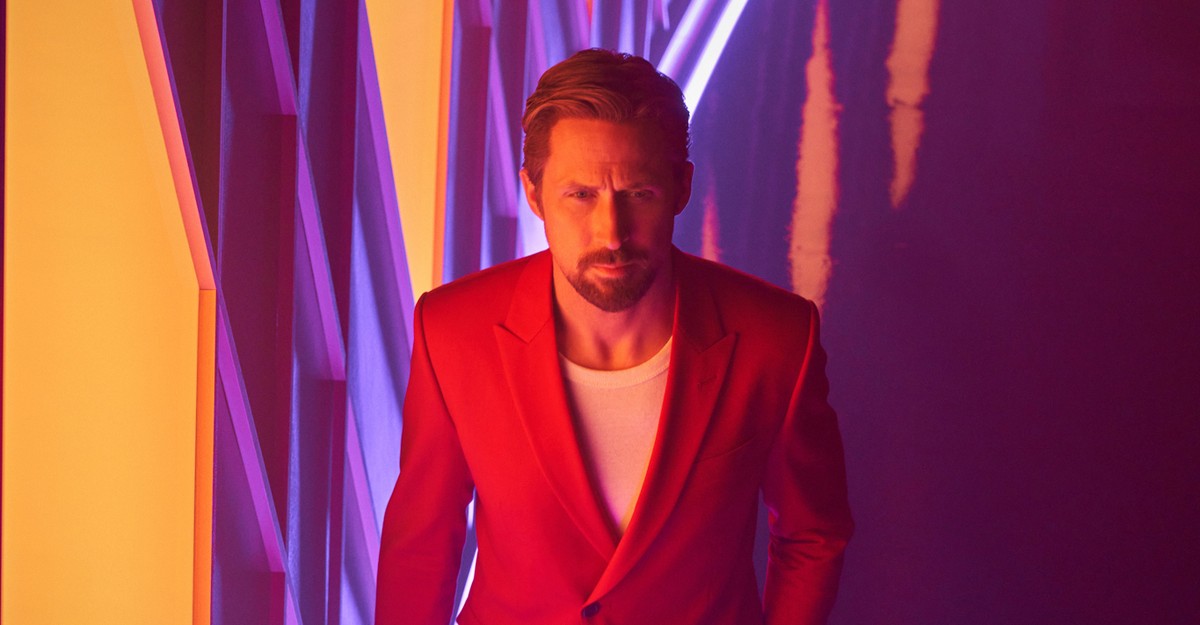Stoicism has long been a powerful weapon in Ryan Gosling’s cinematic arsenal. One of his best-remembered films remains the taut 2011 thriller Drive, in which he played an unnamed stunt driver who is cool behind the wheel but monosyllabic in conversation. As Officer K in Blade Runner 2049, he was quite literally robotic, an artificial “replicant” designed to be void of emotion. In First Man, he portrayed the astronaut Neil Armstrong as prickly and standoffish, far more ready to face his work than any interpersonal relationship. But as remote as he seemed in each of those movies, he was always grappling with a complex character, proper story stakes, and a touch of internal weirdness. His newest lead role, in Netflix’s action blockbuster The Gray Man, has none of that.
Once again, Gosling is playing a man with no name, this time an assassin who goes by “Sierra Six” and carries out black ops for the CIA with ruthless efficiency. The Gray Man, based on a best-selling 2009 novel and directed by the Russo brothers, arrives on Netflix (and in limited theaters) with a ton of pedigree: The brothers directed four Marvel films that are among the most successful ever made, and they’ve assembled a star-studded cast around Gosling that includes Chris Evans, Ana de Armas, Billy Bob Thornton, Regé-Jean Page, and Alfre Woodard. But The Gray Man is a completely anonymous viewing experience, a series of set pieces and pithy jokes that’s devoid of personality. And personality is what truly helps Gosling pop on screen.
The actor he’s frequently reminded me of is Brad Pitt, who catapulted to fame in the early ’90s with striking work in Thelma and Louise, bolstered by his chiseled face. But Hollywood struggled to find good leading-man characters for him—Pitt came across as a generic pretty boy in epics such as A River Runs Through It, Interview With the Vampire, Legends of the Fall, and Meet Joe Black. He instead shone in much stranger supporting performances in 12 Monkeys and True Romance. Pitt found the principal roles that worked for him by pairing up with directors such as David Fincher, Quentin Tarantino, and Steven Soderbergh. Their protagonists had more of an oddball energy, handsome men who seemed ill at ease with their God-given looks.
My favorite Gosling roles have a similar vibe. He’s pulled off the taciturn heroes of Drive, Blade Runner 2049, and First Man, but also the shambling, overconfident private detective Holland March in The Nice Guys, the scumbag trader Jared Vennett in The Big Short, and the kind-hearted but awkward Lars of Lars and the Real Girl. He was at his least interesting as a do-gooder cop in Gangster Squad, and that’s what The Gray Man recalled for me above all. Sure, Six, a government-trained killer, has a dark tinge. But the Russos immediately let the audience know that he’s a fundamentally moral spy. In the first mission depicted, Six holds off on shooting at his target because a kid is nearby; after his handlers press him to not worry about collateral damage, and he discovers corruption in the unit, he quickly goes rogue.
What follows is two hours of chase scenes around Europe. Six hops from Vienna to Prague to London as he’s pursued by the diabolical Lloyd Hansen (Chris Evans), a former spy turned for-hire hit man who lacks his quarry’s ethical principles. Evans, another square-jawed marquee idol, at least gets to have some fun in the part of the villain; he plays Hansen as a fratty twit who can’t stop bragging about his Harvard degree. All Gosling has to work with is Six’s non-personality. Given that the government honed him as a “gray man” who could blend into the background of any assignment, he spends the majority of the movie glowering and mumbling when he’s not being tossed into another CGI-powered combo of running, jumping, and shooting.
The cruelest twist is, Gosling is handsome enough that it almost works. In even the worst dreck, he’s automatically interesting to look at, and if nothing else, Hollywood has always excelled at exhibiting beautiful faces to entertain the masses. The Gray Man might have succeeded if it winked more at the curse of the movie star, making Six uncomfortable with the dashing super-spy archetype that he’s been molded into for his entire adult life. That tension is what I love about my favorite Brad Pitt role, the baseball general manager Billy Beane in Moneyball; Beane was tipped to be a celebrity athlete because of his all-American looks, but felt content only once he was freed from that pressure.
The Gray Man has no such inner depths to explore. Six’s job is simply to defeat Lloyd Hansen, to outrun his other potential captors, and to rescue a plucky little girl named Claire (Julia Butters), the niece of his mentor, Fitzroy (Thornton). The film exists to set up sequels, to spend money on fancy location shoots, and to look glamorous and exciting; every harder edge has been sanded down to nothing. I’m sure Gosling collected a pretty paycheck for the film. In return, he delivers the all-purpose steely charm required of him, but there’s no passion behind it.



